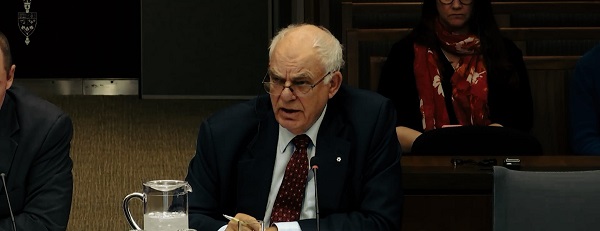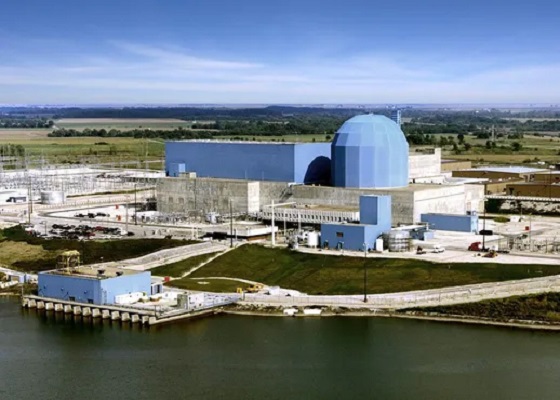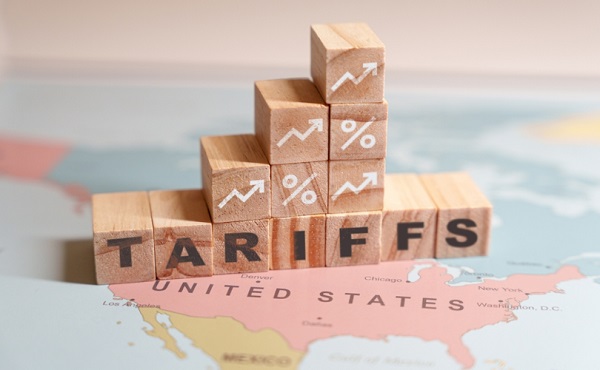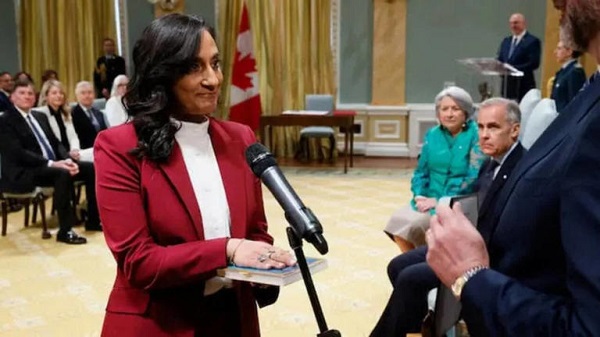Business
Public Accounts Committee Reveals Taxpayer Dollars Funneled to Liberal Insiders with No Accountability

Public Accounts Committee reveals SDTC’s rampant conflicts of interest, lack of oversight, and millions in taxpayer dollars benefiting insiders—while Liberal MPs defend Trudeau’s “green” slush fund.
What happens when politicians promise “green energy” but deliver taxpayer-funded corruption? If you tuned in to Canada’s Public Accounts Committee this week, you found out. On the hot seat was Sustainable Development Technology Canada (SDTC), a bloated agency supposedly designed to fund sustainable technology but apparently also set up as a welfare program for ethically dubious board members.
Now, SDTC isn’t some fledgling startup or small-time charity. This agency is sitting on $330 million of your money – Canadian taxpayer money. And what did Canada’s Auditor General find in her investigation? An unbelievable 186 conflicts of interest. That’s not an organization with a few bad apples; that’s a systematic problem.
So why isn’t anyone doing anything? Here’s where it gets even more outrageous. Enter Ethics Commissioner Konrad von Finkelstein, a man whose entire job is to hold officials accountable for ethical breaches. Did he step up to expose the corruption in SDTC? Not really. Von Finkelstein told the committee that his role is simply to “expose” conflicts of interest, not to actually do anything about them. Think about that. Here’s a man whose salary is funded by taxpayers, and his job description basically amounts to reading out loud the names of people breaking the rules.
Conservative MP Michael Cooper wasn’t having it. Cooper laid it out for von Finkelstein, practically begging him to explain why only two out of dozens of SDTC board members were investigated. But von Finkelstein’s excuse? He couldn’t bother because – get this – the Auditor General had already done the hard work. If that sounds like passing the buck, it’s because it is. Canadians aren’t paying for an Ethics Commissioner to sit back and watch. They’re paying for an official who’s supposed to defend the integrity of public institutions. But that’s clearly not happening here.
Liberal Apologists at Work
Not everyone on the committee wanted answers, though. Some were too busy defending SDTC’s “noble” cause. Liberal MP Nathaniel Erskine-Smith practically bent over backward trying to downplay the whole thing. When Conservative MPs called SDTC a “green slush fund,” Erskine-Smith got indignant. He insisted that SDTC wasn’t a criminal organization and took offense at the term “slush fund.” Really? Because if funneling millions of public dollars into the hands of connected board members isn’t a slush fund, I don’t know what is.
Let’s call it what it is. While Erskine-Smith was busy defending SDTC’s “mission,” the committee heard exactly how that mission was carried out – through unethical, undisclosed conflicts of interest, with board members giving funds to companies they had direct financial ties to. And what did Erskine-Smith call this? Just a “few ethical lapses,” as if millions of taxpayer dollars being handed out without oversight is a minor paperwork error.
The Ethics Commissioner’s Toothless Office
Bloc MP Nathalie Sinclair-Desgagné and NDP MP Richard Cannings pressed von Finkelstein on his office’s glaring lack of oversight. Why was he investigating just two board members when nearly 200 conflicts of interest were flagged? His answer was almost laughable: His office couldn’t enforce anything, couldn’t recoup the wasted money, and couldn’t even stop the bleeding of taxpayer funds because his role is “limited.” Limited? That’s putting it lightly.
And here’s where it gets even more insulting. Von Finkelstein admitted that he wouldn’t coordinate with other agencies like the RCMP or the Auditor General to go after these ethical lapses. This office, which exists solely to enforce ethical standards, can’t or won’t go after those breaking them. It’s as if the Ethics Commissioner’s job is to stand back and announce that something unethical happened, only to shrug and do nothing about it. Can you imagine running any organization that way? Of course not – but in the Canadian government, this seems to be the new normal.
Auditor Testifies, and It’s Worse Than We Thought
Just when we thought the Ethics Commissioner’s testimony had exposed the worst of Canada’s green-tech “accountability” disaster, along comes Auditor General official Michel Bédard. You’d think with the staggering amount of taxpayer money SDTC has under its control, someone would be keeping tabs. But if today’s testimony proved anything, it’s that this agency has zero meaningful oversight, a culture that actively ignores conflicts of interest, and no one stepping in to protect Canadians’ hard-earned money.
So, here we go again. 186 conflicts of interest, millions in public funds granted to companies with ties to board members—SDTC is basically the Wild West of “green” government spending. And guess what? Just like the Ethics Commissioner, Bédard’s office can report on it, but he admitted they can’t actually do anything to stop it. All that money might as well be floating in a pool, with insiders diving in for their share.
The “Accountability” Problem: Michael Cooper’s Pointed Questions
Conservative MP Michael Cooper wasn’t here to play around. He honed in on the obvious question: if SDTC’s board members aren’t held accountable, what’s the point of an Auditor General report? Cooper pushed Bédard to explain why these SDTC board members weren’t facing any real consequences. Bédard’s response? His office doesn’t have the authority to penalize or recover funds—it’s all just for show. That’s the message, folks: this is a government program that “monitors” ethical breaches but has no teeth.
If you’re wondering why SDTC board members feel free to treat taxpayers’ dollars like a bottomless well, this is it. They know that nothing’s going to happen. Cooper hit the nail on the head when he called out the lack of deterrence, and Canadians ought to be asking: why are we funding oversight bodies that can’t actually hold people accountable?
Liberals Try to Soften the Blow—Iqra Khalid’s Flimsy Defense
Then, enter Liberal MP Iqra Khalid, swooping in with damage control. Her goal? To downplay this mess as if it’s all just a big misunderstanding. She floated the idea that SDTC’s ethical violations weren’t “intentional misconduct” but simply lapses in judgment, suggesting board members maybe didn’t “understand” conflict-of-interest rules. Are we supposed to believe that these seasoned board members—handling millions in taxpayer funds—just forgot their ethics training?
Khalid hinted that more “training” and “internal guidance” would fix things. Bédard’s subtle response was telling: yes, training is helpful, but let’s be clear, SDTC’s issues are deeper. It’s a cultural problem within an organization that has no incentive to follow the rules. Training can’t fix a system that fundamentally disregards ethical standards. Khalid’s attempt to sidestep accountability only underscored what’s really happening here—a refusal to impose consequences.
Nathalie Sinclair-Desgagné and Richard Cannings: Why Aren’t Taxpayers Being Compensated?
Bloc Québécois MP Nathalie Sinclair-Desgagné and NDP MP Richard Cannings brought up the most glaring issue yet: where’s the money? Taxpayers are funding SDTC, watching it go straight into the hands of conflicted board members, and yet, there’s no mechanism to get that money back. Sinclair-Desgagné demanded answers on why SDTC couldn’t recoup funds that were misappropriated due to these ethical lapses. Bédard’s response? The Auditor General’s office has no authority to force financial recovery, meaning SDTC’s board can make conflicted decisions with no risk of losing the cash.
Cannings and Sinclair-Desgagné went further, questioning whether anything less than legislative reform could solve this crisis. It was clear that these MPs understood the root of the problem: SDTC’s oversight is built on a house of cards, with taxpayer money at stake and no tools to hold anyone accountable. Canadians are effectively writing blank checks to a board of insiders who profit without consequences.
The Big Picture: A Culture of Entitlement and Zero Accountability
Michel Bédard’s testimony laid bare the sickening entitlement within SDTC’s leadership. This isn’t a minor oversight or an accidental misunderstanding—this is a systemic culture where people with a financial stake in the projects can vote themselves money, and no one bats an eye. Worse, the Liberal defense of SDTC is that because it has a “green mission,” its failures somehow don’t matter. They’re telling Canadians that as long as the organization’s purpose sounds virtuous, the rules don’t apply.
Let’s be real. No one believes that SDTC’s board members are unaware of basic ethics rules. These are people who sit in decision-making positions, who know full well the implications of conflict of interest. What’s happened here is that they’re taking advantage of a system that has no means of holding them accountable, and they know it.
What Canada Needs Now, Real Accountability, Not Empty Promises
The real takeaway from Bédard’s testimony? Canada’s so-called oversight framework is a farce. The Trudeau government has set up an accountability structure that looks good on paper but doesn’t stop the political class from dipping their hands in taxpayer money. If we want to see real change, Canadians need a complete overhaul of the system—one that actually empowers the Auditor General and Ethics Commissioner to take action and enforce consequences, not just to “report” and move on. Until that happens, SDTC will keep doing what it does best: functioning as a de facto slush fund for Trudeau’s elite insiders, where conflicts of interest are not exceptions but the rule.
Canadians deserve far better than a government handing out their tax dollars to political friends who think they’re untouchable. Michel Bédard’s testimony laid bare SDTC’s blatant failures, and it’s a moment of reckoning. Will any of these politicians rise above the corruption and demand real reform? Or will this testimony be just another chapter in the Trudeau government’s long saga of accountability failures?
Let’s get one thing straight: this isn’t about “green energy” or “sustainability.” Those are just fancy words bureaucrats use while they funnel public money to friends and business associates without a shred of oversight. And here’s the kicker—Liberal MPs want Canadians to think this is just a “misunderstanding” or, worse, that questioning it is somehow unpatriotic. It’s the Trudeau swamp at its finest: shut down accountability by slapping a green label on taxpayer-funded corruption and hoping no one notices.
Let’s face it: Sustainable Development Technology Canada isn’t operating in some dark corner of bureaucracy. It’s operating right out in the open, with the full backing of Trudeau’s government, while the Ethics Commissioner, the Auditor General, and Liberal MPs play the role of political apologists, doing everything they can to sweep this rot under the rug.
This committee session showed Canadians one thing loud and clear: they’re being lied to. Told that their money is supporting green technology, but instead, it’s being pocketed by insiders. SDTC, the Ethics Commissioner, the Auditor General—they’re not protecting Canadians. They’re protecting the interests of a political class that’s putting cronyism above the public good.
In a fair system, people would lose their jobs over this. Taxpayer money would be repaid. And those who let SDTC slip through the cracks would face consequences. But in Trudeau’s Canada, officials hide behind excuses, Ethics Commissioners wring their hands about “exposure,” and Liberal MPs get offended when we dare call corruption for what it is.
This isn’t “oversight.” It’s an insult to every Canadian who funds this government. It’s time to drain the Trudeau swamp, end the era of unchecked cronyism, and demand real, accountable governance. Canadians deserve nothing less.
Subscribe to The Opposition with Dan Knight .
Business
Meta inks 20 year deal for nuclear power

 MxM News
MxM News
Quick Hit:
Meta has signed a 20-year agreement to purchase nuclear energy from Constellation Energy’s Clinton Clean Energy Center in Illinois. The deal not only saves a struggling nuclear facility from potential shutdown but also signals Meta’s entry into the nuclear space—a direction long championed by President Donald Trump as part of his ambitious pro-American energy strategy. While big tech often aligns itself with global climate pledges, Meta’s move reveals a rare alignment with a policy rooted in national energy security and self-sufficiency.
Key Details:
-
Meta will purchase 1.1 gigawatts of nuclear energy annually starting in 2027, enough to power a mid-sized city.
-
The Clinton Clean Energy Center’s future was in jeopardy until this deal; Meta’s backing enables continued operation and potential expansion.
-
President Trump has signed executive orders aiming to quadruple U.S. nuclear output by 2050, a vision that aligns with Meta’s pivot to nuclear energy.
Diving Deeper:
In a major shift, Meta has inked a two-decade-long deal to buy all the nuclear energy output from Constellation Energy’s Clinton Clean Energy Center. This move secures approximately 1.1 gigawatts of carbon-free power starting in 2027—effectively salvaging a plant that had been teetering on the brink of early closure due to the expiration of state-backed subsidies.
Without Meta’s commitment, the Clinton facility, which has relied on zero-emission credits since 2017, would likely have shut down. Instead, the plant now faces a renewed lease on life and even a proposed expansion of its output by 30 megawatts. While the energy will feed into the regional grid and not directly power Meta’s servers, the tech firm says this still furthers its broader goal of sourcing 100% clean electricity.
Meta’s head of global energy, Urvi Parekh, acknowledged the broader significance of the decision. “We are proud to help keep the Clinton plant operating for years to come and demonstrate that this plant is an important piece to strengthening American leadership in energy,” she said.
That sentiment aligns closely with the vision President Donald Trump outlined in a recent series of executive orders aimed at resurrecting U.S. nuclear dominance. Trump’s directives target a sweeping overhaul of the Nuclear Regulatory Commission, investment in small modular reactors (SMRs), and domestic sourcing of nuclear fuel—policies designed to reverse decades of regulatory stagnation and reliance on foreign energy.
The Meta-Constellation agreement is part of a broader trend among tech titans leaning into nuclear energy. Google has pledged to fund three new nuclear sites and partnered with SMR developer Kairos Power. Amazon, for its part, has invested more than $500 million into SMR projects and bought a nuclear-powered data center campus in March.
However, Meta’s deal with Constellation is its first concrete nuclear investment, representing not just a bet on energy security but also a nod to the Trump administration’s approach. President Trump has repeatedly emphasized the role nuclear must play if America is to achieve true energy independence and withstand the geopolitical threats posed by nations like China, Russia, and Iran.
Constellation CEO Joe Dominguez noted that “supporting the relicensing and expansion of existing plants is just as impactful as finding new sources of energy.” That philosophy mirrors the Trump energy doctrine—pragmatic, forward-looking, and unapologetically pro-American.
Notably, Constellation is also weighing a proposal to build an SMR at the Clinton site, pending regulatory approval. It’s a bold prospect that could align seamlessly with President Trump’s executive mandates to cut red tape and accelerate innovation in the nuclear space.
Business
To Build BIG THINGS Canada Needs to Rid Itself of BIG BARRIERS

From Energy Now
By Deidra Garyk
We find ourselves at the intersection of energy reality and sustainability. The convergence means the way we do business globally is morphing. Some see opportunity in the most unlikely of places, while others only see obstacles.
A new report by the Public Policy Forum entitled Build Big Things: A playbook to turbocharge investment in major energy, critical minerals and infrastructure projects makes a case for why Canada should find the opportunities and how we can do that.
Analysis done by Calgary’s own economist and professor Trevor Tombe identified that Canada’s real GDP per capita growth from 2015 to 2024 was 1.4 percent. This puts us in second-last position among OECD countries.

Canada also took the penultimate spot among OECD countries for the time it takes to get a construction permit. As the graph shows, this isn’t a partisan problem; therefore, it can’t be corrected with a partisan solution. Although, noticeably, we have slipped further over the last few years. For multinational corporations that can invest anywhere, Canada’s ease of doing business appeal is not attractive, and that hampers our ability to build big things.

Fortunately, some jurisdictions are doing something about unnecessarily burdensome regulations. Alberta’s Red Tape Reduction initiative has removed over 200,000 regulations for net savings of $3 billion, a number tallied by the businesses impacted, not government. These are duplicative or archaic rules that added limited to no protections and removing them has not exacerbated risks. Work is still ongoing to ensure the balance is right.
BC is also fast-tracking projects, recognizing the need to build to remain a modern society. By shifting energy development permitting to the BC Energy Regulator, project timelines have improved.
The regulatory barriers affect more than traditional energy development. A new mining project in Canada can take anywhere from 15 to 25 years from application to operation. Energy, mining and infrastructure projects go through three to six years of federal regulatory review processes, in addition to provincial reviews. This is unacceptable if Canada is to meet the resource demands of the future.
The Report makes the case that, “[p]rioritizing nation-building projects such as ports, rail and roads is essential to strengthening internal economic linkages, enhancing export competitiveness and ensuring supply chains remain resilient and globally competitive.”
It goes on to cite, “barriers to success that include: burdensome regulatory processes and permitting procedures; insufficient financial supports and difficulty accessing capital, particularly in the crucial, high-risk development stages before getting to FID; inadequate infrastructure such as roads, bridges and ports; and a persistent lack of capacity and capital among Indigenous groups to participate fully as partners in new projects.”
There’s waning interest from the public in shrill anti-resource activism that puts their current lives and livelihoods at risk. Average weekly earnings in Alberta haven’t changed over the last ten years. Canada is one of the most indebted countries in the world, including subnational and consumer debt. This means that we are not as easily able to strategically act to deal with issues or embrace opportunities.
The report offers four strategic pillars for action:
- Co-ordinated financing: Align public and private funding sources to support priority projects and close investment gaps. Governments should not always aim to be the first or primary source of funding. The most effective role for public financing is often in de-risking projects,
- Efficient and effective regulations: Reconfigure regulatory and permitting processes to get to “yes” much more quickly, providing clearer timelines, improved efficiency and effectiveness, greater certainty, enhanced environmental performance, and a more strategic role for economic regulators across jurisdictions.
- Enabling critical infrastructure: Take a systems-level approach to planning to ensure that foundational infrastructure and skilled labour are in place to support future growth.
- Increasing Indigenous economic participation: Strengthen partnerships between project proponents, government institutions and Indigenous rights-holders to support meaningful Indigenous involvement in major projects, including through improved access to capital, stronger ownership opportunities and continuous capacity building.
Canadians must define who we are and who we want to be, on our own terms. We must change the mindset from fear to opportunity and be proud to be producers of primary materials. We need a kick in the pants to move towards taking calculated risks rather than running away, hoping for security because of our fears. We must build big things.
Deidra Garyk is the Founder and President of Equipois:ability Advisory, a consulting firm specializing in sustainability solutions. Over 20 years in the Canadian energy sector, Deidra held key roles, where she focused on a broad range of initiatives, from sustainability reporting to fostering collaboration among industry stakeholders through her work in joint venture contracts.
Outside of her professional commitments, Deidra is an energy advocate and a recognized thought leader. She is passionate about promoting balanced, fact-based discussions on energy policy, and sustainability. Through her research, writing, and public speaking, Deidra seeks to advance a more informed and pragmatic dialogue on the future of energy.
-

 Business24 hours ago
Business24 hours agoSobering reality check – Trump is right: Canada’s economy can’t survive a fair trade agreement with the US
-

 Business2 days ago
Business2 days agoOil producers brace for market share battle
-

 Brownstone Institute23 hours ago
Brownstone Institute23 hours agoAnthony Fauci Gets Demolished by White House in New Covid Update
-

 COVID-191 day ago
COVID-191 day agoCanada keeps COVID jab on immunization list for pregnant women after US halts recommendation
-

 Fraser Institute1 day ago
Fraser Institute1 day agoDeclining stature of foreign affairs minister underscores Canada’s waning influence on world stage
-

 COVID-191 day ago
COVID-191 day agoApproval of new COVID-19 vaccine dashes hopes Trump admin would close the book on controversial shots
-

 Business1 day ago
Business1 day agoOttawa must listen to the West
-

 Business23 hours ago
Business23 hours agoPatriotic Millionaires concept of tax ‘fairness’ ignores tax facts in Canada







